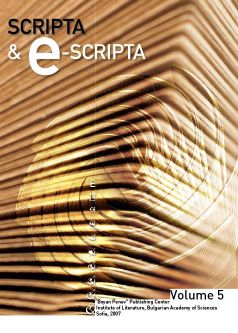The Origin of Bulgarian Relative Pronouns
The Origin of Bulgarian Relative Pronouns
Author(s): Ivan IlievSubject(s): Language and Literature Studies
Published by: Институт за литература - БАН
Keywords: Bulgarian relative pronouns; semantic analysis; relative clauses; diachronic and synchronic analysis
Summary/Abstract: This article is part of forthcoming research on the history of Bulgarian relative pronouns. The question of their nature, origin, and evolution is inextricably bound up with the repeatedly discussed problem of the so-called replacement of their initial anaphoric stem by an ‘interrogative’ one. The relativization is a process of transformation of mutually dependent sentences (interrogative: who will…?; conditional: if someone…) into relative clauses, through changing their initial meaning, and transforming the noun, or the pronoun, which unifies them semantically, into a relative conjunction, which, usually has gender, number, and case. The acquirement of relative function by the *kw- stem is a result of a choice between several alternatives (*Ч-, *t- и *kw- root). Several possible causes and ways for the course of this process, mentioned in this article, can be supposed. The process of replacement of the old stem was catalyzed by several factors, which acted with different force, with different types of generated relative clauses, and with different relative pronouns. Probably, the relative *kw- stem was established lastly in the developing (commenting, procentential) clauses, under the influence of other relative clauses.
Journal: Scripta & e-Scripta
- Issue Year: 2007
- Issue No: 5
- Page Range: 207-227
- Page Count: 21
- Language: English
- Content File-PDF

